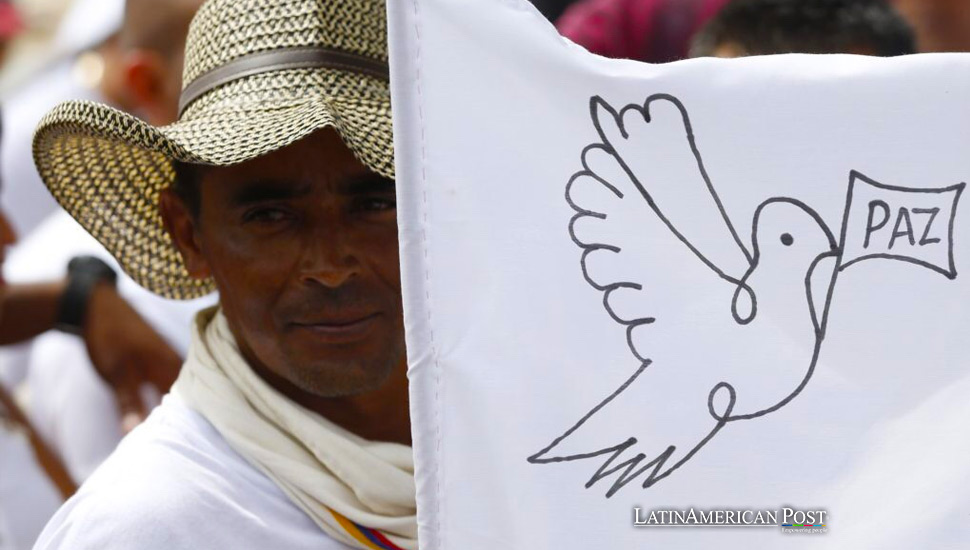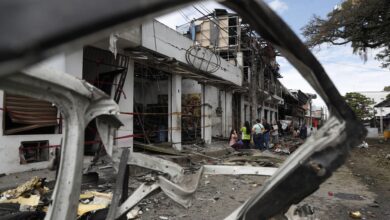Colombia’s Fragile Peace: Challenges and the Road Ahead

Colombia, a nation long scarred by armed conflict, has cautiously navigated a fragile peace process since 2016. The historic agreement between the Colombian government and the Revolutionary Armed Forces of Colombia (FARC) aimed to end over five decades of civil war that claimed the lives of at least 260,000 people. However, the road to lasting peace remains fraught with challenges, threatening to derail the hard-won progress.
Colombia’s long history of conflict has left deep wounds. The FARC, initially a communist insurgency, waged war against the government for decades. Right-wing paramilitary groups also emerged, adding further complexity to the conflict. Factors like poverty, land inequality, and the illegal drug trade fueled the violence.
The signing of the Peace Accords in 2016 sparked hope for a brighter future. The agreement outlined a roadmap for the demobilization of FARC fighters, transitional justice mechanisms, and rural development programs aimed at addressing the root causes of the conflict.
Challenges to Implementation
Despite the initial optimism, the implementation of the peace accords has been slow and uneven. Former FARC combatants struggled to reintegrate into civilian life due to a lack of economic opportunities and security concerns. Violence in former conflict zones persisted, fueled by criminal groups vying for control of territory and drug trafficking routes.
The political landscape in Colombia further complicates the peace process. The election of President Ivan Duque in 2018, who campaigned on a tough-on-crime stance and skepticism towards the FARC, created a sense of uncertainty. His administration has adopted a more cautious approach to implementing the peace accords, raising concerns among some sectors about the government’s commitment to the process.
Social Leaders Under Threat
One of the most concerning developments is the ongoing violence against social leaders, human rights defenders, and indigenous communities advocating for land rights and environmental protection. These individuals are often targeted by criminal groups and remnants of FARC dissidents who operate in remote areas.
The international community, including the United Nations, has supported the peace process. Financial assistance and monitoring mechanisms are essential for ensuring the implementation of the accords and promoting human rights. However, international pressure alone cannot guarantee success. Ultimately, the sustainability of peace hinges on Colombia’s commitment to addressing its internal challenges.
Voices from the Ground: The Importance of Grassroots Initiatives
Despite the daunting obstacles, there are glimmers of hope. Countless grassroots initiatives across Colombia are fostering reconciliation and healing. Former FARC combatants are working within communities to build sustainable livelihoods. Indigenous communities are actively defending their territories and advocating for environmental protection.
Confronting the dark past is crucial for preventing the cycle of violence from repeating. Colombia has made strides in addressing past atrocities through truth commissions and transitional justice mechanisms. However, greater emphasis on education programs that promote tolerance and understanding across social divides is essential.
A Long Road Ahead: The Need for Collective Action
The future of peace in Colombia remains uncertain. The delicate transition from war to peace requires a sustained commitment from all stakeholders. The government must prioritize the safety of social leaders, ensure the full implementation of the peace accords, and invest in rural development programs.
Former FARC combatants must continue their transition into civilian life and work towards a peaceful future. Civil society organizations and indigenous communities are vital in holding the government accountable and promoting reconciliation efforts.
A robust and independent civil society is essential for safeguarding democracy and ensuring the long-term sustainability of peace. Strengthening mechanisms for citizen participation and fostering open dialogue are crucial steps in this journey.
A Beacon of Hope for the Region
Colombia’s peace process holds significance for itself and the entire region. A successful transition could offer a valuable model for nations struggling with armed conflict. The world will closely watch Colombia as it navigates this complex and challenging path towards a lasting peace.
Also read: Deep Dive into the Galeón San José Investigation into Former Colombian President Santos
Colombia’s journey towards peace is far from over. The road ahead is paved with challenges, but the nation’s unwavering spirit and the commitment of countless individuals offer a glimmer of hope. By prioritizing reconciliation, upholding human rights, and investing in a sustainable future, Colombia can finally turn the page on its long history of violence and emerge as a beacon of peace in the region.




